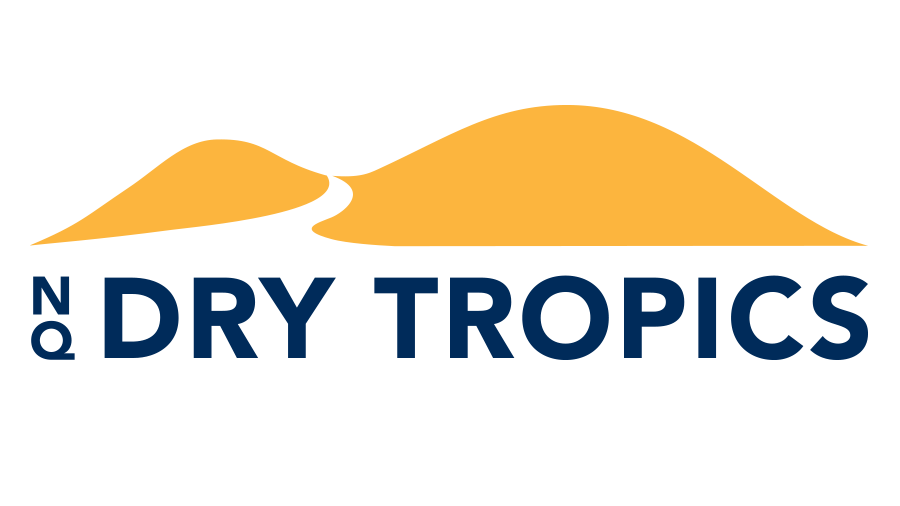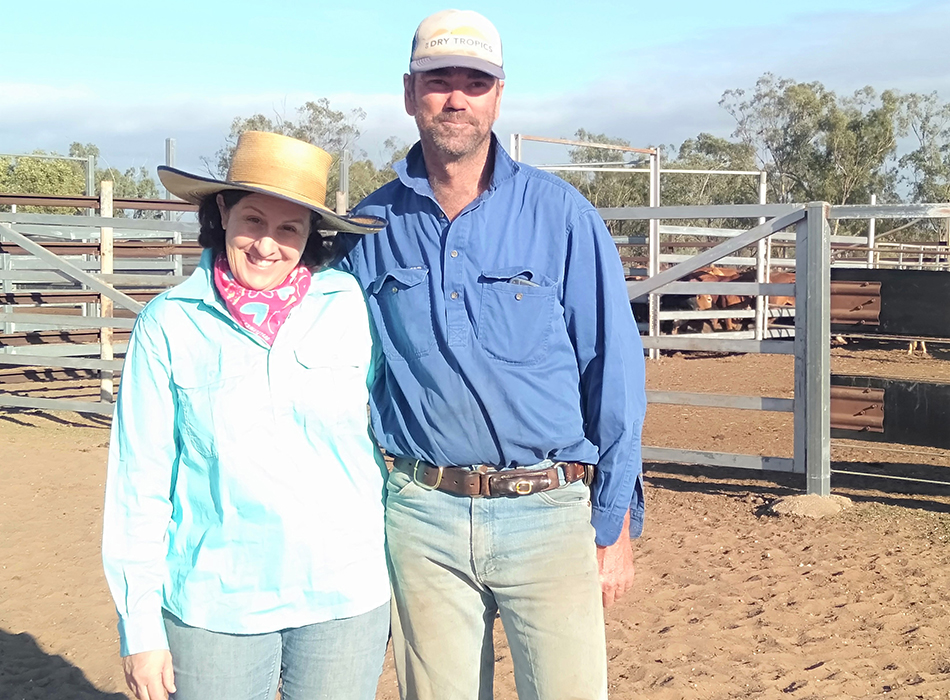GRASS program helps graziers bring good ideas to reality
Emma Robinson and Mick Duckett in the yards at Caerphilly Station.
CAERPHILLY Station graziers Mick Duckett and Emma Robinson have some great ideas about how to improve productivity and land condition on their 59,000ha property 200km south of Charters Towers.
And accessing the Queensland Government’s Grazing Resilience and Sustainable Solutions (GRASS) program is helping them to implement those ideas to improve ground cover and herd production.
GRASS has provided them with extension support and a little funding, to help them target areas needing improvement on their property.
Mr Duckett welcomed the support through the GRASS program as he believed he could not previously get extension help in his area (as it was not a priority for reducing fine sediment).
NQ Dry Tropics Senior Project Officer Josh Nicholls is responsible for delivering the program in the Burdekin Natural Resource Management region.
“Landholders who have previously earned accreditation under the Grazing Best Management Program, like the Caerphilly team, were first to be considered for support under the GRASS program,” Mr Nicholls said.
Mr Duckett said the support helped them to break big challenges down into paddock-scale solutions which was invaluable.
Using satellite imagery and the latest spatial data software, Mr Nicholls and Field Officer Carleigh Drew were able to help the couple assess land condition across the whole property and target areas of land with poor groundcover.
Of particular interest were areas of gully erosion caused by poorly-designed table drains beside a major public road running through the property.
Every rain event meant more soil lost down the table drain.
Five years ago Mr Duckett and Ms Robinson changed from rotational grazing to a time-controlled grazing program and have seen the positive impact this has had on their land condition.
That success motivated them to apply the same principles to improve land damaged by preferential grazing.
They mapped the scalded area that could be rehabilitated with a controlled grazing program and the NQ Dry Tropics team recommended mechanical intervention to catch and slow water running off from the roadway.
Mr Duckett said identifying the problem areas and having tools to monitor change was a big step forward.
Collaboratively, the graziers and extension officers developed a strategy for the gully system incorporating a series of 100m long contour banks.
The banks will slow the flow of water by catching and diverting it to stable areas where it will be able to infiltrate and grow pasture – a win-win situation.
The scalded paddock would be fenced into four paddocks, each of which would be grazed intensively by a 1000-strong mob for little more than a week to get the desired effect before the area was rested for about 12 months.
The couple has been successful with the short intensive grazing rotations across the rest of the property and they are confident they can return the scalded areas to full production, given just a few reasonable rainy seasons.
NQ Dry Tropics will provide some funding to help with the earthworks and fencing, but the real value will be in the ongoing support provided to the Caerphilly management team to help them monitor and bring poor and degraded areas of the property back to good condition.
The GRASS program, funded through the Queensland Government’s Reef Water Quality Program, helps graziers meet their obligations under the reef protection regulations to maintain land condition, reduce erosion, and ultimately protect the Great Barrier Reef.
Graziers participating in the program will have the opportunity to be considered a lower risk for compliance inspections until June 2022.
Those graziers who held a current Grazing BMP accreditation at June 2019 would have the opportunity through GRASS to be considered a lower risk for compliance inspections until December 2024.
Contact Senior Grazing Project Officer Josh Nicholls (josh.nicholls@nqdrytropics.com.au) or visit the NQ Dry Tropics website at www.nqdrytropics.com.au for more details.

